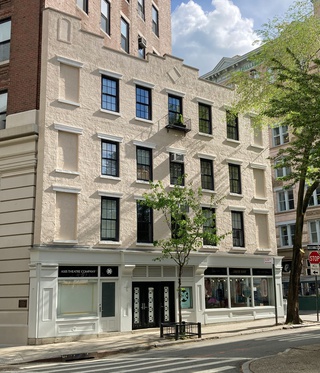
Hidden History
In a way, this isn’t news at all, it's history, but for many it surely will be news to learn that a major piece of musical history is right here in our midst, in Greenwich Village NYC, in bricks and mortar. I am so fortunate to live and to have been able to have my business here and be part of its music scene for decades, where so much music has been made and heard, and for what I do and have done to still be thriving here. From the jazz clubs of the 1930s-40s to the folk clubs of the 1950s-60s, to the many music clubs today and to Washington Square Park, where people still gather on Sundays as they’ve been doing for nearly seventy years, to play and listen to all kinds of music; this is a gift. While there are clubs that have been ongoing since the 1960s and are still active, like the Cafe Wha? and the Red Lion, there is a building on a little triangular piece of land, one of those tiny plots that was created by the ever-changing re-doing of the local street map that was going on here from the 1790s through the 1920s. On one such small triangular plot stands a building erected in 1834, originally three stories, which had a story added and was stuccoed over in the 1920s, and its basement extended into that of the then-new nine-story building behind it at 1 Sheridan Square. It was in that basement, in the 1930s, that a shoe salesman and jazz aficionado from New Jersey named Barney Josephson opened a jazz club called Cafe Society. His was the first club in New York, and possibly in the country, to mix black and white people both on the stage and in the audience. The club, which helped launch the careers of Marylou Williams, Big Joe Turner, Sarah Vaughn, Hazel Scott, Lena Horne and, most notably, Bille Holiday, kept on until the late 1940s when it was castigated by the doings of HUAC, Joseph McCarthy and his ilk, and forced to close. Today, though on a prominent and noticeable corner, the building is nondescript, its ground-floor retail space occupied by a designer eyeglasses store. The basement space houses the Axis Theater Company, presently closed due to the covid Pandemic. In 2017 a plaque was finally put in place on the far side of the building denoting the significance of Cafe Society. If you’re ever in New York and you happen to be in The Village, you owe it to yourself to walk by and pay respects to this most important and historic spot that helped give birth to so much of our music today. Having done what I do and am still doing in this neighborhood that has such a great musical history is indeed an honor.






